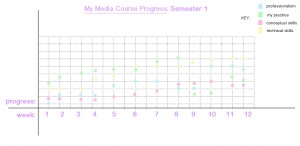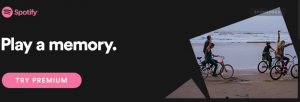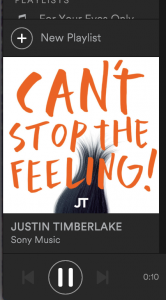The last twelve weeks have gone by in the blink of an eye. The first semester of university can be summed up in a few descriptive words: daunting, exciting, self-guided and educational. Daunting because it felt as if I was being thrown into the deep end, shoved into the dark, pushed off the edge without a harness and whatever other metaphor you can think of that just screams of the unknown. Orientation and the first week of actual timetabled classes would be enough to scare anyone, let alone little socially anxious me, who pretty much didn’t sleep the entire week leading up to it. But somehow I made my way to that first orientation with my friend and met people who have now become some of my closest friends.
That first week was so surreal actually, even after orientation made me feel slightly more settled. I definitely relied heavily on my phone to check where my classes were and I didn’t even get lost once! It was very self-guided and I felt like I was so far from the days of High School just by the way things were run at Uni. There was no one but myself to encourage me to complete work on time, which is very hard might I add. I definitely liked the timetable – 3 days a week of class and one was just watching a movie. It sounds like a dream, doesn’t it?
The 12 weeks were educational for more than the obvious reasons – I actually felt I learnt just as much if not more outside the classroom than in it. I learnt the entire city loop train timetable, for one, and the locations of RMIT buildings (though day 1 it felt like a maze). I learnt about my own independence and even gained a bit more confidence in the class room. I think friends help with that too, a lot actually, but compared to day 1, entering class and seeing new people was not so terrifying.
I did feel lost quite a lot of the time – metaphorically that is, because I definitely had the building floor plans down pat OBVIOUSLY (but actually, I wasn’t too bad with getting to classes…).
In terms of the Workshop and projects, I did feel like we weren’t being given enough direction in the very early weeks and that I was just going in blind, hoping for the best. But I guess Project Brief 3 was the turning point for that, personally, as I went from a credit level mark the project before to a high distinction. Probably had something to do with the subject matter (an interview with my own father) which made the process a little easier, but I also think it was just because I was finally getting my footing within the course. I’d never done documentary style, nor had I attempted using found footage and incorporating it the way I did so it was something completely new and exciting to experiment with.
Every project was a learning experience and I’d like to think I improved as the weeks went by. I figured out how to use equipment like the lapel mic, zoom and rode mic – which included hiring some from the media department which was a big responsibility on it’s own. Sound in general was a big improvement to say, this time last year working on year 12 media projects. My weakest point has always been audio, so learning how to use Audition and recording devices for a project whose audio component was the focus, was a big deal!
I think I found the Lectorials the most interesting and educational. It always gave me a lot to think about and plenty of material for blog posts. I liked the relevancy of copyrighting laws, social media and other media practices we were taught over the 12 weeks. I always went away with new knowledge and a curiosity to research things discussed in the class.
Workshops were better for my professional conduct with potential co-workers. Peer evaluation and discussion initially seemed stressful and painful – I didn’t like the idea of being critiqued in front of the entire class. But I think in the long run it was very helpful, and I actually really enjoyed telling other students what I felt (mostly the positive stuff though, I’m not a sadist) about their work and how they did. Workshop also enabled me to learn to work productively and cooperatively with people I barely know – in PB4 – and become much more acquainted by the end of the project!
Overall, the first semester of this course was very eye-opening to a world beyond high school. I learnt about professional conduct, media laws and regulation and about my own creative style which I hope to mould more in the future.
Below is a graph I whipped up on photoshop to very vaguely demonstrate my ups and downs through this course.



